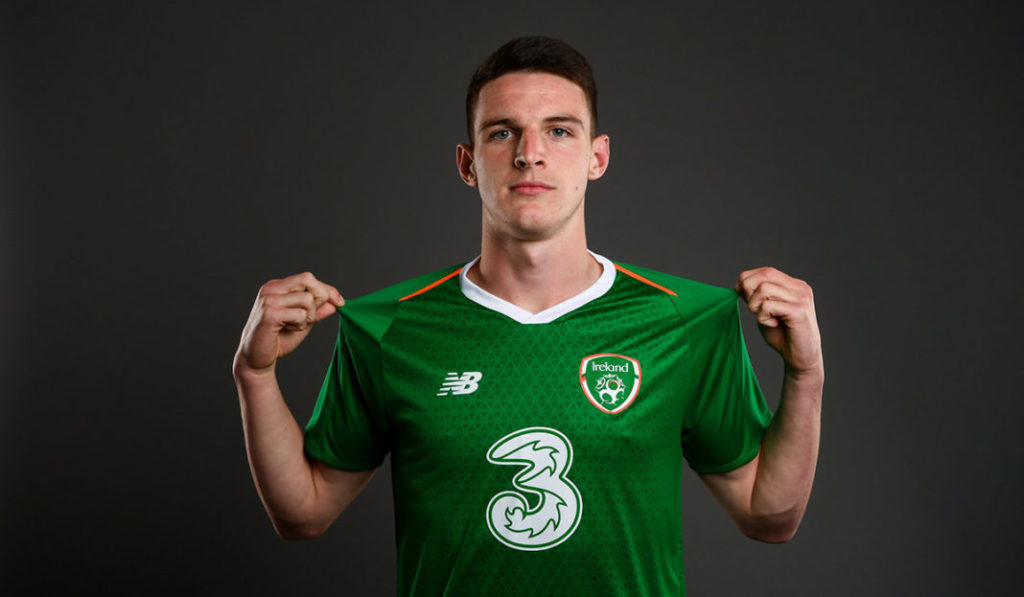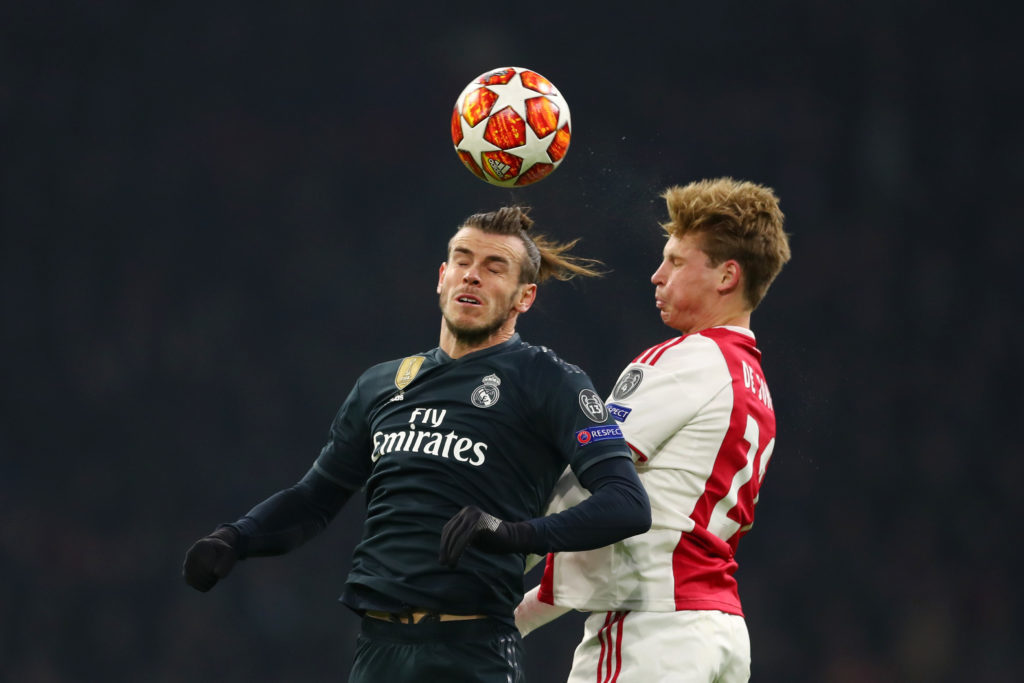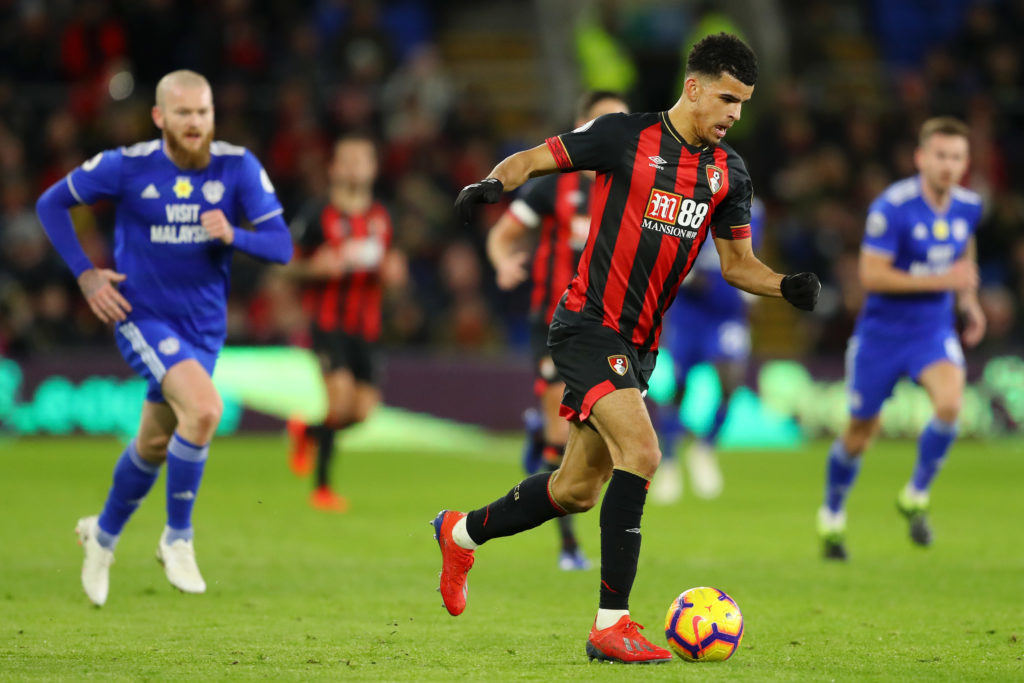On the surface, Declan Rice’s switch of allegiance to England appears to be a case of greener pastures. But you’d be forgiven for thinking something more sinister is at heart.
London-born Rice played for Ireland from under-16 level through to the seniors. When involved with Martin O’Neill’s set up in 2018 - playing in senior friendlies against Turkey, France and America, the question of his nationality was repeatedly brought up.
Again, and again, the 20-year-old coolly batted away any notion of switching to England, often mentioning how honoured he was to play for Ireland and how proud his grandfather would have been seeing him in the green shirt.
The fact that he’s gone from such Irish devotion to switching to England in a year is, in a lot of ways, hard to believe.
 Declan Rice declared for England earlier this month despite already representing Ireland at every level (image:Getty)
Declan Rice declared for England earlier this month despite already representing Ireland at every level (image:Getty)So much so that it suggests that the decision, which came to light earlier this month, may have been influenced somewhat from his inner circle.
Now, his father, Sean, is extremely unlikely to have deterred him from playing for Ireland. An avid supporter of Ireland, he has his son’s Irish caps framed and mounted on the walls of his home. He is even said to be massively “disappointed” by Rice’s switch.
However, Rice’s agent and advisors, seeing their client developing into a very promising star, will have been looking at the situation through a different telescope.
Unheralded power
The power of agents in today’s game is unheralded. To see this, you only have to look at Jorge Mendes’s impact in luring half of Portugal’s footballing scene to Wolves.
Rice’s team would have been conscious of the lucrative benefits there are for being a young English player rather than Irish.
Indeed, Gareth Bale’s agent, also the agent of, coincidentally, former Ireland turned England starlet, Jack Grealish, once said that Bale “missed out on millions” by not playing for England.
Yet, it is not only the potential sponsorship deals, like the one Joe Hart had with the shampoo brand, Head and Shoulders, that should be considered, but also the future transfer fees.
 Jack Grealish shares the same agent, Jonathan Barnett, with Real Madrid star Gareth Bale. Barnett has previously said that Bale opting for England over Wales had cost millions in missed sponsorship opportunities (Photo by Lars Baron/Getty Images)
Jack Grealish shares the same agent, Jonathan Barnett, with Real Madrid star Gareth Bale. Barnett has previously said that Bale opting for England over Wales had cost millions in missed sponsorship opportunities (Photo by Lars Baron/Getty Images)As has been the case particularly since the invention of the Premier League, English players are treated as something of a premium. Take 21-year-old Dominic Solanke, for example. After an uninspiring spell at Liverpool, with just a single Premier League goal, he moved to Bournemouth last month for a hefty £17m. Would an Irish striker, with the same level of experience, command such a fee? You wouldn’t think so.
Some of the columns in the British newspapers last week suggested that the Football Association of Ireland were predators and can’t complain if players not born in Ireland, like Rice, happened to switch allegiance at the last minute. But this opinion is flawed.
As well as failing to acknowledge that Rice genuinely wanted to play for Ireland in the first place, they also fail to highlight the fact that we live in a more openminded, multicultural society where dual nationality is increasing at a fast rate.
 Dominic Solanke joined AFC Bournemouth for £18 million in the January transfer window (Photo by Warren Little/Getty Images)
Dominic Solanke joined AFC Bournemouth for £18 million in the January transfer window (Photo by Warren Little/Getty Images)Regularly the Irish media suggest that it’s degrading to be reliant on players born outside Ireland. But for a country of only just under five million, where football is not the main sport, this view is a little jarring.
Yes, you can point to the success of Croatia, with a population of only four million, but there are always going to be the odd, isolated case. In essence, the FAI and Ireland are not, and might never, be in a position to turn down players born abroad.
Rice was pursued by England because he is progressing rapidly and is a huge loss for the FAI because they nurtured him and, if not playing for one of the big clubs soon, at the very least you’d imagine Rice will be a Premier League player for the next decade.
For that reason, along with the fact that he did at one time love playing for the country, his switch to England is a hard one to take for Irish football.

